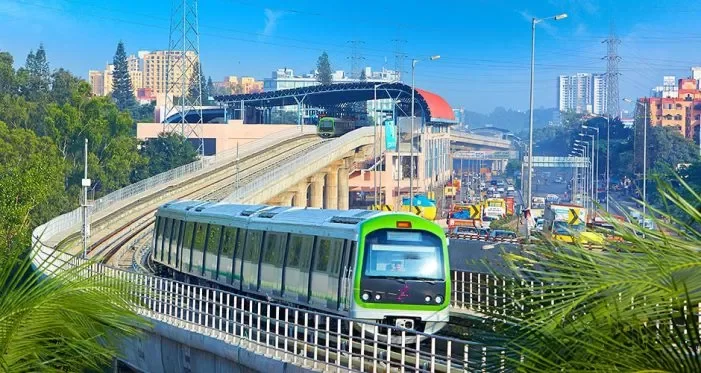Bengaluru’s ambitious metro expansion is set to redefine urban mobility in the city, with Karnataka’s Deputy Chief Minister announcing that 175 kilometres of new metro lines will be operational by 2026. This marks a crucial milestone for the city’s rapidly evolving public transport network, which has already become one of the busiest metro systems in the country.
Speaking at a press conference after inspecting the newly extended metro line from Nagasandra to Madavara on Tumkur Road, CM shared details of the project. “In the next two years, 30 km of new metro lines will be added by 2025, with the entire 175 km network set to become operational by 2026,” he stated. The 3.14-km extension from Nagasandra to Madavara, a part of the Green Line, will begin commercial operations on November 7, further boosting connectivity in the city. This new phase of metro development includes a significant investment in expanding Bengaluru’s transport infrastructure. The government has already allocated ₹1,130 crore towards the procurement of new trains, and the Centre has given the green light to the third phase of the project, which will transform how the city connects its far-flung areas to the city centre.
Beyond expanding the metro lines, the state government is also focusing on enhancing commuter convenience. CM highlighted that talks with the National Highways Authority of India (NHAI) are underway to construct underpasses at key stations, including Madavara. Plans are also being developed to build pedestrian skywalks and improve intermodal transport integration with railway stations like Yeshwanthpur. For Bengaluru’s residents, these developments are not just about convenience—they are a crucial step towards more sustainable urban mobility. By providing an eco-friendly alternative to congested roads, the metro expansion will help reduce the city’s traffic woes and contribute to lowering carbon emissions. The metro system is already the most heavily utilised in India, with ridership numbers proving that the city’s population is eager to adopt cleaner modes of transport.
As Bengaluru continues to expand, its metro system is set to play a central role in the city’s transition towards sustainability. With the promise of reducing traffic congestion, air pollution, and carbon emissions, the metro network offers a much-needed solution to the city’s growing mobility challenges. Residents are optimistic about the positive impact this expansion will have on their daily lives, from reducing commute times to improving the overall quality of life. The extension of Bengaluru’s metro is not just a step towards better transport; it is a vision for a cleaner, greener, and more connected city. As the project progresses, it will not only ease mobility but will also stand as a testament to how cities can evolve towards more sustainable futures through innovative public transport solutions.


